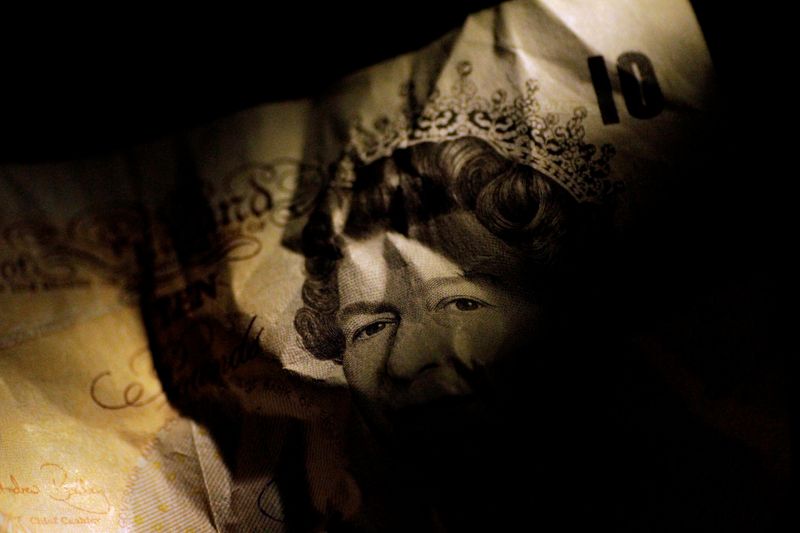By Stefano Rebaudo
(Reuters) - Sterling hit a fresh one-month low against the U.S. dollar on Tuesday as investors expect the Bank of England (BoE) to end, and possibly reverse, its monetary tightening cycle soon while the U.S. Federal Reserve might keep rates higher for longer.
High interest rates usually support currencies.
Investors await more comment from the BoE and provisional data for British fourth-quarter gross domestic product (GDP) on Friday, which might provide further clues about the central bank's next moves.
The central bank's chief economist, Huw Pill, said on Monday that the bank was prepared to do more to get inflation to target.
Meanwhile, fading risk appetite due to expectations for more monetary tightening from the Fed and the European Central Bank, as well as geopolitical tensions, might weigh on the pound, which investors see as a risky currency.
The U.S. military searched for debris from a suspected Chinese spy balloon shot down by a U.S. fighter jet, and the White House said it would keep a calm approach to relations with Beijing.
Sterling was flat at $1.2018 after hitting its lowest since January 6 at $1.1986.
The dollar eased after its rally the previous day but still hovered near a one-month peak.
The BoE signalled the tide was turning in its battle against high inflation after it raised interest rates last Thursday.
"We think investors may be over-reacting to this 'dovish pivot' since the Bank of England views have proven quite erratic over this tightening cycle," said Matthew Ryan, head of market strategy at global financial services firm Ebury.
"At any rate, incoming inflation data will be even more important than before and will dictate whether the BoE intends to continue raising rates after the next meeting in March," Ryan added.
British consumer price numbers are due next week.
The euro fell 0.1% against the pound to 89.15 pence.
"While the UK may have just about avoided a technical recession in Q4-22, it is still very much in the middle of a downturn," said Sanjay Raja, senior economist at Deutsche Bank (ETR:DBKGn), adding that he expected Q4-2022 GDP to flatline.

"A 2023 technical recession is very likely, with GDP contracting in both Q1 and Q2," he added.
Following the BoE's February decision, Deutsche Bank lowered its terminal rate expectation from 4.5% to 4.25%, but sees "risks rising of further hikes" in the second half of this year.